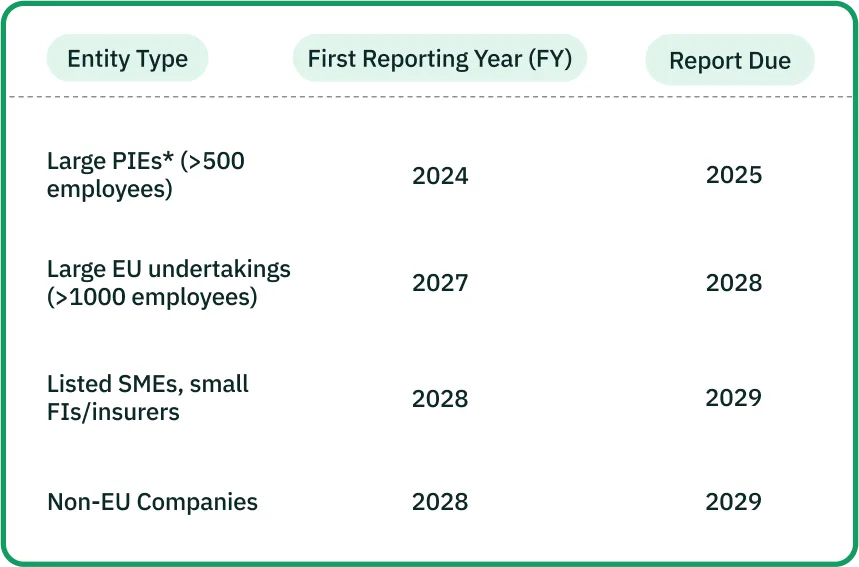
| You Must Report On | What It Means |
|---|---|
| Your DMA Process | How you conducted the DMA, how the key stakeholders were engaged, and what were the methodological judgements or assumptions involved, if any. |
| Material Topics Identified | The sustainability issues that are relevant to you, across E, S, and G dimensions. |
| Aggregation Level | Whether material issues were identified at the topic or sub-topic level—and why that level was appropriate. |

| ESRS Theme | What You Must Disclose |
|---|---|
| General | Explain how you manage sustainability, who’s responsible, and how these issues affect your business plans. Describe your process for identifying key topics (double materiality), and clearly state topics you will include and exclude for reporting. |
| Environmental | Report on policies, actions, and targets for environmental topics that apply to your business: climate change, pollution, water, biodiversity, and resource use. Transparently disclose your impacts, risks, and opportunities from applicable topics. |
| Social | Share key information about your performance, impacts, risks, and opportunities related to your: employees, supply chain workers, local communities, and consumers. Cover topics like fair pay, safety, inclusion, and rights—as applicable. |
| Governance | Describe how you ensure ethical business practices, including your approach to culture, corruption, lobbying, and supplier conduct. Report relevant policies, actions, and fines, with lighter rules if you're a smaller business. |
